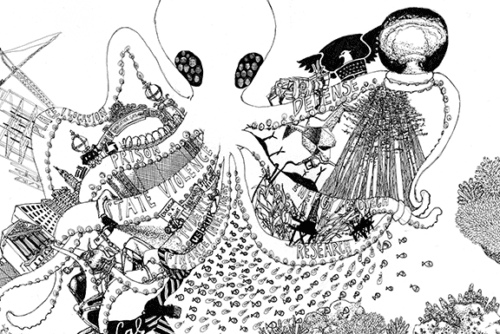Feminist organizing at the U.S.-Mexican border necessarily links processes and relationships that are transnational and not exclusively managed by citizenship in the nation-state; furthermore, the women who become activists and filmmakers in Maquilapolis are a nontraditional population, often unrecognized by the fields of sociology, political science, or economics. Maquilapolis is a cultural and social project in which these women—who are simultaneously workers, mothers, advocates, and teachers—are political actors addressing not only the conditions of waged labor within an individual factory, but who identify a broader frame to describe the lethal assault on life chances within globalization, both in their gendered treatment as disposable workers to be exploited and thrown away, and in the destruction of their border community environment through heedless dumping of industrial wastes. Their practices rearticulate the border as more than an export-processing zone, and name it as a dehumanized social space, a gendered necrospace, one of complex and pervasively gendered violence. The women explicitly foreground both state and capital’s capacity to dictate who matters and who is dispensable, who may be used up to the point of extinction, what Achille Mbembe has termed “necropolitics.” 1 Their actions aim to stop the conversion of populations of border women and children into what Giorgio Agamben calls “the new juridical category of ‘life devoid of value.'” 2 In refusing to be less than human, the women contest the regime that presumes their lives to be readily available and easily dismissed. Contrary to formal exercises in political modernization that aim to universalize the ideal type of state-centered politics everywhere, collaborative projects like Maquilapolis instead constitute a transnational public sphere to address who may live and who must die within the longer history of global inequality.
Issue 6.3 | Summer 2008 — Borders on Belonging: Gender and Immigration



